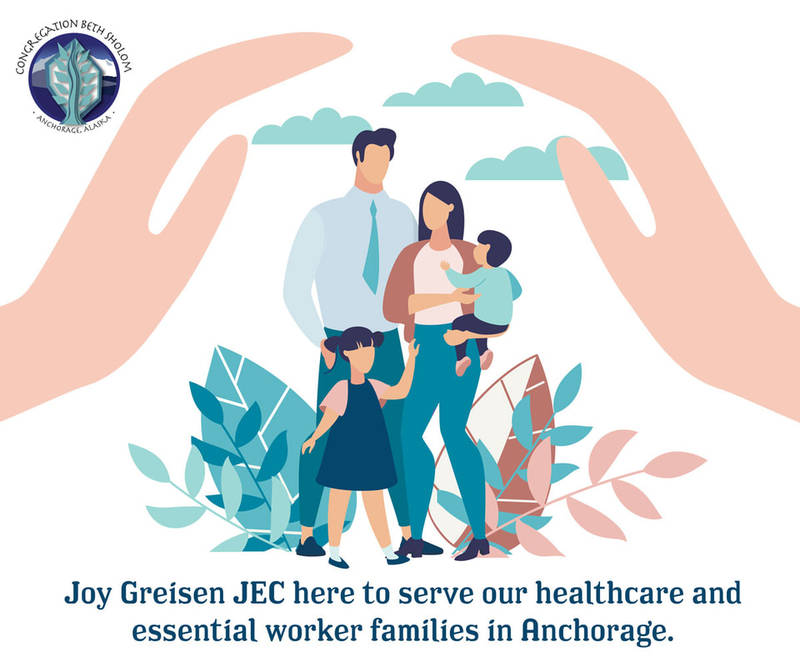End-of-Life Planning
End-of-Life Planning
Even though thinking about death may be difficult or uncomfortable, planning ahead for that eventuality can make a challenging time easier for both you and your loved ones. In fact, the Union for Reform Judaism (URJ) encourages members to engage in end-of-life planning: https://urj.org/what-we-believe/resolutions/health-care-decisions-dying.
Get to Know the People in Your Life
Click on the image to download the PDF
“Getting to know someone else involves curiosity about where they have come from, who they are.” Penelope Lively, Author"
"Although we may know about some of the significant people, places and events that have shaped the lives of our loved ones, we don’t know everything.
Sitting down with loved ones to talk about their lives can be rich and satisfying. Learning about memorable events, people, places, values and lessons they have learned can help bring you closer to people you care
about most.
Sharing stories with loved ones can help you get to know them in new and different ways and can deepen and strengthen your relationship with them. Talking can help you (and them) better understand the life they lead – and give both of you a new appreciation for their unique life story."
Legal Considerations

Here are some short explanations about different processes to consider, along with a number of helpful resources. A good general starting point is the Alaska Court System website on estates: http://www.courts.alaska.gov/shc/probate/probate.htm.
Wills
“A will is a signed document that describes your wishes about things that happen after your death, such as who receives your property and who will take care of your minor children or an incapacitated adult child.” http://www.courts.alaska.gov/shc/probate/probate-wills.htm If a person does not have a will when they die, they are deemed to have died “intestate.” The law provides what happens to the property of someone who dies intestate. Generally, priority for any property goes to a surviving spouse, then descendants, then parents. For more specific information, please check out the Alaska Court System website: http://www.courts.alaska.gov/shc/probate/probate-intestacy.htm.
Wills are a way to make decisions about what happens to property and who will take care of any minor children when somebody dies. In other words, wills can be used to dictate a different and more nuanced outcome from what the law would otherwise require. For more information about wills, please see the Alaska Court System website about wills:
http://www.courts.alaska.gov/shc/probate/probate-wills.htm.
And check out this list of resources for finding an attorney to help you through the will-drafting process, http://www.courts.alaska.gov/shc/probate/probate-resources.htm, as well as this helpful series of materials from Alaska Legal Services for if you are considering preparing your own will: https://alaskalawhelp.org/classroom/preparing-your-own-will?ref=7rQza.
Probate
Probate is the formal court process that transfers property owned by a deceased person to those that are supposed to receive the property. For more information about probate, see the Alaska Court System website: It can often take at least 6-12 months for the probate process to occur.
Trusts
Trusts can be used in addition to a will to transfer property upon death in a way that can help avoid probate. Trusts can be used for a variety of reasons, including helping transfer property to others more quickly, but they can also be more complicated. If you are interested in learning more about trusts, please see the Alaska Court System website . It is also recommended that you speak with an estate planning attorney about trusts if it is something you are interested in.
Advanced Health Care Directive
End-of-life planning should also include thinking about end-of-life decisions. One aspect of this includes making choices about health care, especially in instances when a person can not make health care decisions for themselves. An attorney can help discuss with you how an advanced health care directive works. You can also find more information and a form to create an advanced health care directive here.
Beneficiary Designations
Most financial institutions now allow for and encourage beneficiary designations. A beneficiary designation dictates who receives a specific asset when the owner dies. These designations are typically available for a number of financial accounts, including checking, savings, and retirement accounts, and are also frequently used for life insurance. Beneficiary designations take precedence over a will or trust upon death, so it is important to make sure that beneficiary designations accurately reflect the owner’s wishes. Each company will have its own specific process for making beneficiary designations, and each account must have its own beneficiary designation.
Power of Attorney
A power of attorney gives one person the ability to make decisions on behalf of another. This can be another helpful component of end-of-life planning, as it can be used to handle financial affairs if necessary. But it is important to be careful about who is given a power of attorney, as it is unfortunately a power that can sometimes be abused and used to take advantage of people. An attorney can help discuss with you how a power of attorney can be used.
Attorneys
If you would like to speak with an attorney about any or all of these processes, please check out the Alaska Court system website which includes a number of ways to find a probate lawyer who can help.
Thu, April 18 2024
10 Nisan 5784
Joy Greisen Jewish Education Center
Now accepting new enrollments for children: 3 months to 12 years.
Preschool Website
Friday Night
| Friday Evening Shabbat Service (YouTube Live) : 6:00pm |
| Candle Lighting : 9:19pm |
Shabbat Day
| Judaism 101 : 9:00am |
| Shabbat Morning Text Study : 10:30am |
| Havdalah in Anchorage (Facebook) : 7:30pm |
| Havdalah : 10:27pm |
Upcoming Programs & Events
Apr 23 Community Seder 2024/5784 Tuesday, Apr 23 6:00pm |
May 11 Torah Uncensored season 4 Shabbat, May 11 12:30pm |
This week's Torah portion is Parashat M'tzora
| Shabbat, Apr 20 |
Candle Lighting
| Friday, Apr 19, 9:19pm |
Havdalah
| Motzei Shabbat, Apr 20, 10:27pm |
Erev Passover
| Monday, Apr 22 |
Join Our Mailing List
Shabbat Candle Lighting



